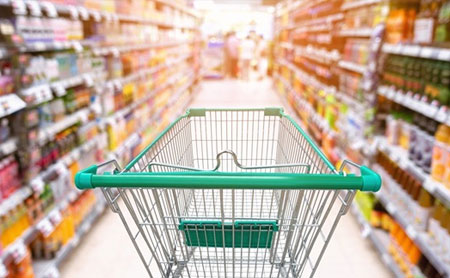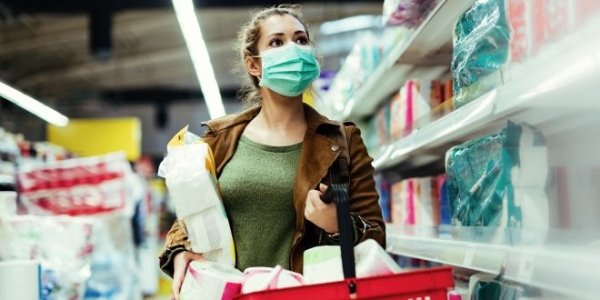The big debate always boils down to the readiness of the health system to face a potential onslaught of Covid-19 cases, versus the need for the economy to fully function in order to save jobs.
Let’s rewind for a minute; ‘We have been here before’ … speculating about how the much-desired easing of the lockdown-induced regulations are most likely to unfold.
Luckily for some industries, the speculations turned out to be true in previous lockdown easing announcements.
The big debate around this always boils down to the readiness of the health system to face a potential onslaught of Covid-19 cases, versus the need for the economy to fully function in order to save jobs.
Over the weekend, President Cyril Ramaphosa is expected to address the nation on whether the country will be moving to Alert Level two . This comes after the Forum of South African Directors-General (Fosad) recommended to the National Coronavirus Command Council (NCCC) that South Africa’s lockdown regulations be eased.
Moderate spread
A lot of activity that would have only have been allowed in level two or one were permitted in the various iterations of advanced level three.
Government has allowed restaurants to open for sit-down operations; there’s been a relaxation on the ban on leisure travel and accommodation within one’s own province; the curfew was extended to between 22:00 and 04:00 and business and other authorised air travel is allowed.
A move to alert level two would indicate a moderate Covid-19 spread with high health system readiness.
According to Professor Charles Parry, director of the alcohol, tobacco and other drug research unit at the SA Medical Research Council (SAMRC), most provincial hospitals will be able to withstand the eased regulations, if there are ‘tougher’ regulations on alcohol availability and advertising.
Parry says that data from ten hospitals in Gauteng, Eastern Cape, KwaZulu Natal and the Western Cape show that in the four weeks following the second ban on liquor sales and the institution of a 21:00 curfew, there has been on average a 38% decrease in trauma presentations.
“I have heard parts of what the government is negotiating with industry, but I think the government should push for stronger regulations on container sizes,” Parry says.
He suggests that beer and cider bottles should be limited to 500ml while wine and spirits should be no more than 750ml.
He emphasised that the risk of easing the regulations is huge and there is no guarantee that trauma units will not be congested again with patients from alcohol-related accidents.
His SAMRC colleague, specialist scientist Dr Catherine Egbe, called for smokers to re-think their lifestyle choice in the midst of the pandemic, despite the decision government will likely take.
“People are now more aware of the dangers smoking poses to their health and this should guide people’s actions and decision about smoking going forward. People should be protected from exposure to second-hand smoke, stay smoke-free if you have already quit” Egbe says.
Not so optimistic
The liquor and tobacco industries have been vocal about the ban on their operations, and with the speculation of the limitations being lifted it is weary of celebrating before the actual announcement saying: “we have been here before”.
Representing the manufacturers and distributors in alcohol beverages, Kurt Moore says the South African Liquor Brand Owners Association (SALBA) has made recommendations to government to reconsider its ban, but they have not yet received confirmation whether it will be lifted.
“We do not know if the ban will be lifted. No official date has been given.”
Moore says that even when the ban is lifted, the industry will never recover the loses incurred.
“The wine industry has lost R5 billion. Every week the ban continues we lose R400 million,” Moore says.
Chairperson of the Fair-trade Independent Tobacco Association (FITA) Sinenhlanhla Mnguni shares the same sentiments.
“At this point, we are cautiously monitoring the situation. There have been similar rumours circulating in the past only for the government to continue with the ban, so we are not getting too excited just yet. A decision to lift the ban, however, would be welcomed,” Mnguni says.
He too says there has not been any engagement between industry and government in relation to the sale of cigarettes for the anticipated alert level two.
“We have always stated that our door is open, and we accordingly wait for government to give us an audience,” Mnguni says.
Mnguni points out that even though it isn’t clear what the regulations are going to be, billions have been lost not only by the industry along the value chain but also by the fiscus as SARS has not been able to collect much revenue from the tobacco industry as a result of the ban.
“There has been ongoing speculation over the past five months that the ban could be lifted, however, we can only be sure of this once new regulations are issued,” said Philip Morris South Africa’s corporate communications
“We are therefore unable to comment further on this but remain hopeful that the government will soon lift the ban”.
British American Tobacco uttered the same sentiments.
Tourism and inter-provincial travel
The tourism sector has been one of the industries that have been hardest hit by the pandemic globally, and it will continue to feel the impact of Covid-19.
Every day the country has been under lockdown around R740 million was lost to the sector and 600 000 jobs are anticipated to be lost said the CEO of the Tourism Business Council of South Africa, Tshifhiwa Tshivhengwa.
Tshivhengwa said if Ramaphosa is going to open up the economy and for the country to thrive, “tourism employees to go back to work”. This will only meaningfully happen if Ramaphosa lifts the ban on inter-provincial travel.
“People must cross the provinces because people in Gauteng are the ones who feed Limpopo, Mpumalanga, North West, Free State and the Drakensburg area with travel.”
“There’s no reason to open a hotel in Bela Bela if people cannot move,” Tshivhengwa said.
Fighting to survive
FlySafair chief marketing officer Kirby Gordon says the aviation market was currently “operating between 6% and 8% of the seats that were available this time last year”.
The airline accounts for 60% of that domestic share which it says is still modest with demand being restricted by the regulations.
“We have built up to a point where we are now operating between 22 and 26 flights a day, depending on the day of the week, but this is only a fraction of. What we are capable of operating,” says Gordon adding that they are staffed and fleeted to operate 84 flights a day which was a norm before lockdown.
A lift of the ban on interprovincial travel won’t be a silver bullet to solve to low demand especially in an environment where economic growth is expected to decline. However, Gordon said full domestic travel would provide the “the first step up toward a point where we can actually start thinking about recovering anything lost”.
“Right now, we are just fighting to survive.”
International travel
Tshivhengwa said the discussion on when international travel will be allowed also “can’t be avoided any longer”, explaining that the government needs to give the sector a date on when it will be allowed even if it is with restrictions.
All air travel would be permitted in Alert Level 1 but Tshivhengwa said that could be next year and the country did not have the “luxury” to wait until then especially with the Spring and Summer seasons at our doors.
“Tanzania is open and we know Kenya has put a date down to open (August 1) and those are our competitors,” he said adding that people in our key source markets who want to go to Safari will go to these countries if South Africa does not open its borders.





